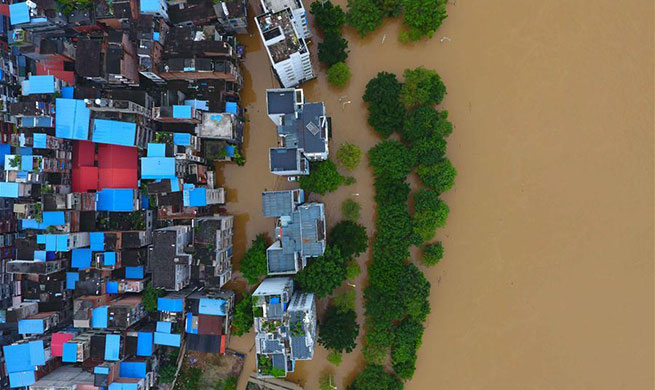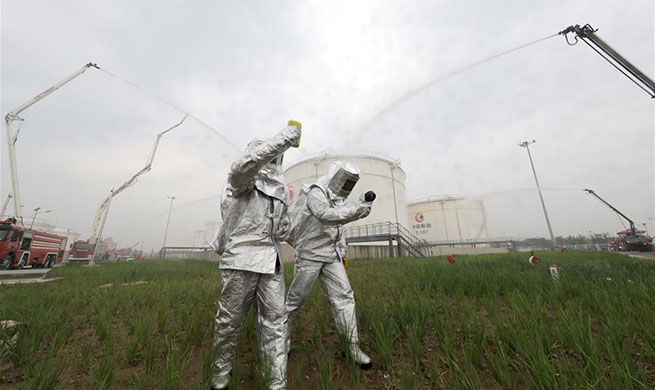SAN FRANCISCO, July 9 (Xinhua) -- Attorney General Bob Ferguson of the U.S. state of Washington Tuesday has brought a lawsuit against U.S. Navy's proposed plan to expand the operations of low-flying training jets on Whidbey Island, about 48 km north of Seattle, Washington.
Ferguson said the Navy's decision to increase its jet training operations on Whidbey Island, one of the largest islands composing the state's Island County, failed to adequately analyze human health, environmental and historic impacts.
"The Navy has an important job, and it's critical that their pilots and crews have the opportunity to train. That does not relieve the federal government of its obligation to follow the law and avoid unnecessary harm to our health and natural resources," he asserted.
The U.S. Navy authorized in March this year the expansion of its Growler program, under which the Growler EA-18G electronic warfare aircraft would perform nearly 100,000 take-offs and landings per year for the next 30 years.
The Navy also plans to increase by up to three dozen Growler jets, which can conduct electronic warfare to jam enemy communications and launch systems, adding to the 82 jets already based on Whidbey Island, by 2022.
Ferguson brought the lawsuit to the U.S. District Court for the Western District of Washington and criticized the Navy for failing to go through due environmental review process for the expansion project.
The Navy violated the National Environmental Protection Act and Administrative Procedure Act by improperly analyzing the impact of the program, Ferguson said.
Local officials said the deployment of more planes on the island would mean more training operations, thus more noise and other disruptive risks for local residents and the state's fragile ecosystems.
Washington Governor Jay Inslee expressed his support for Ferguson in moving the lawsuit.
"The Navy has an obligation to follow the law and ensure adequate mitigation for its actions. Their efforts could result in disproportionate adverse impact to our state's environment and the health and quality of life of Washington's residents," he said.
He urged the federal government to strike a balance to ensure national security without "permanently damaging the landscapes, species and communities they are seeking to protect."













